

The UAE (United Arab Emirates) is home to many of the world’s wealthiest people.
It is very important to understand the culture and customs in order to avoid rudeness when inviting important guests from the UAE to Japan.
The UAE is a Muslim country. Although understanding of the culture and customs of Muslim countries is expanding in Japan, there are still many parts of the country that we do not know about.
In this article, we will introduce basic knowledge of the UAE and points to consider when doing business with Muslims when entertaining important UAE clients in Japan.
We will also introduce some Japanese cultural experiences that your important UAE guests will enjoy. Please refer to them when entertaining your guests from Dubai and Abu Dhabi.
First, it is important to know about the UAE (United Arab Emirates)
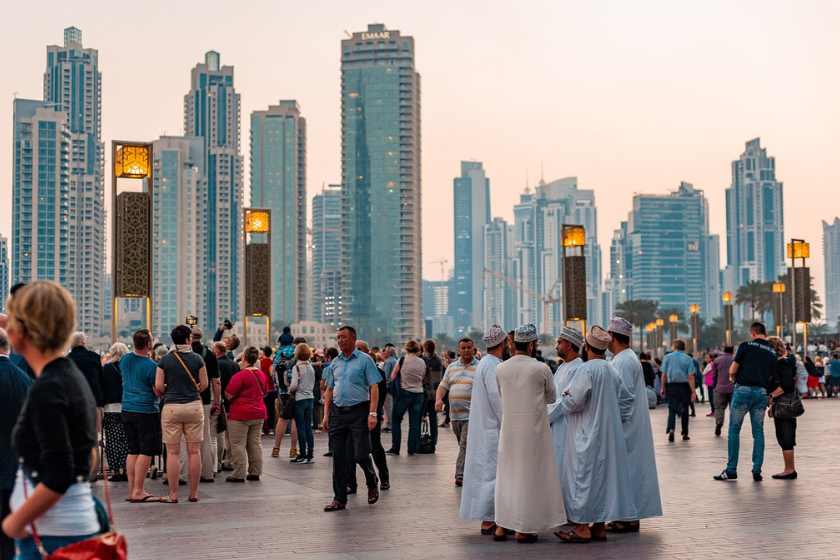
UAE (United Arab Emirates) consisting of seven emirates (emirates)
UAE is an acronym for United Arab Emirates.
Located at the southeastern tip of the Arabian Peninsula in the Middle East, facing the outlet of the Arabian Gulf and partly the Gulf of Oman, it is a federal state consisting of seven emirates: Abu Dhabi, Dubai, Sharjah, Ras Al Khaimah, Fujairah, Ajman, and Umm Al Khaywayn.
The president is elected through elections, but basically the Prime Minister of Abu Dhabi is the president of the UAE and the Prime Minister of Dubai is the vice president.
The capital is Abu Dhabi City, with Dubai City as the main financial and trade center in the Middle East, with Abu Dhabi as the oil business and Dubai as the international distribution center.
Reference: Ministry of Foreign Affairs official website ” United Arab Em irates
UAE & JAPAN ” United Arab Emirates
Culture and Religion in the UAE (United Arab Emirates)
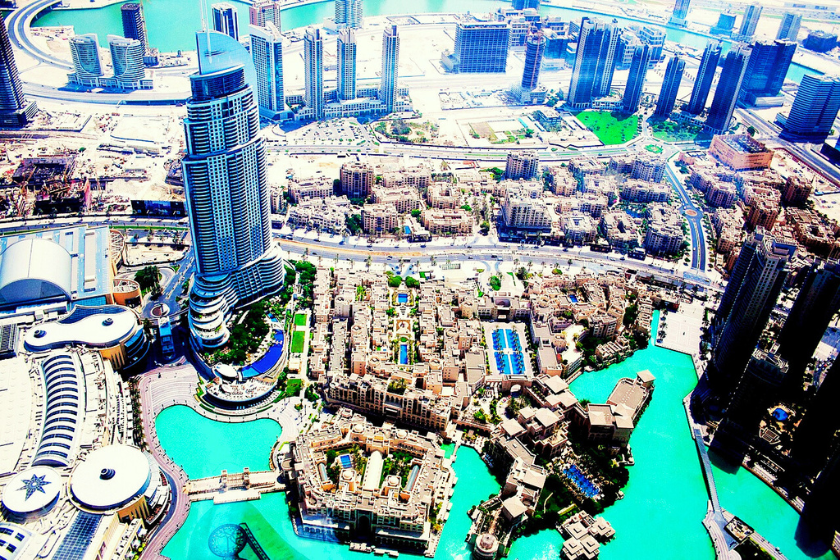
The culture of the UAE strongly reflects elements of Arab culture, and traditional Arab customs and practices can be seen in various settings.
In the UAE, Islam is the official religion of the country and Muslim festivals and events play an important role.
The native-born people in the UAE are called Emiratis in English, and pure Emiratis are about 13% of the population.
The official language is Arabic, but English is also well understood in Dubai and Abu Dhabi.
However, the UAE is a conservative society that demands respect, especially for religious customs and morals.
Visitors should respect local customs and regulations, especially since Islamic law (Sharia law) influences law-making and legal decisions.
Abu Dhabi
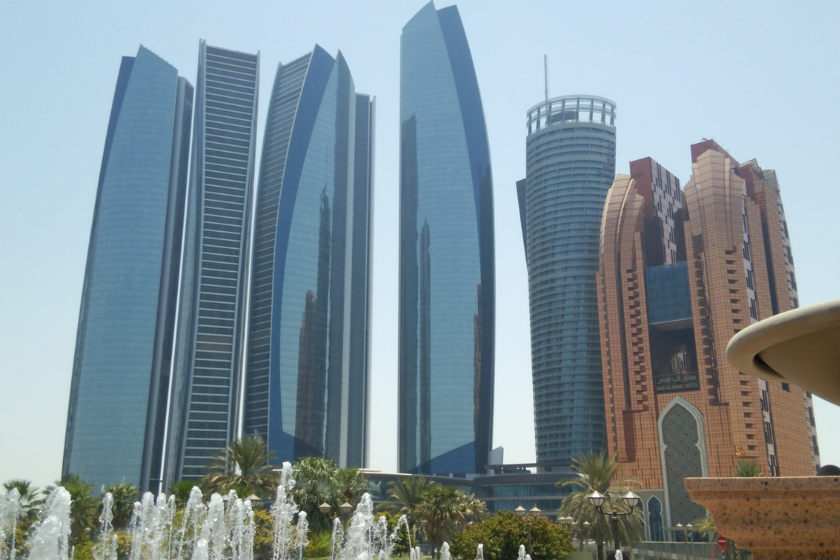
Abu Dhabi is the capital of the United Arab Emirates (UAE) and the largest city in the country.
Abu Dhabi is the political center of the United Arab Emirates and a member of a federation of seven emirates (emirates).
It is also economically important and has abundant oil resources.
The oil industry is a major pillar of Abu Dhabi’s economy and is home to many national and international energy companies.
The Emirate of Abu Dhabi occupies more than 80% of the federal land area.
The capital city of Abu Dhabi is located on Abu Dhabi Island and is known as a beautiful city with modern architecture.
There are many islands, including the oil bases of Zirku, Das, Alzana, and Mubarraz, and in addition to the oil industry, the Louvre Abu Dhabi Museum, an annex to the Louvre Museum in France, opened in November 2017.
The Emirates Palace Hotel, an ultra-luxury hotel with a total cost of 400 billion yen, has been developed, and it is also loved as a luxury resort.
Dubai
Dubai is one of the United Arab Emirates (UAE), an emirate located between the emirates of Abu Dhabi and Sharjah on the Persian Gulf in the Middle East.
Dubai does not rely on oil as its primary source of economic income; instead, it has developed a diverse range of economic activities.
First, Dubai is known as an international financial center, offering a vibrant business environment in finance, trade, real estate, and tourism.
And with its skyscrapers, luxury resorts, desert safaris, man-made islands, and theme parks, it is also a world-class resort destination that attracts the world’s richest people.
Famous tourist attractions include Burj Al Arab, Burj Khalifa (the world’s tallest building), Dubai Mall (a huge shopping mall), and Palm Jumeirah (an artificial island), making Dubai a world-class tourist destination.
Although Dubai is a Muslim country, it is a cosmopolitan city where diverse cultures coexist.
Dubai offers international entertainment and events while respecting Islamic culture and traditions.
Dubai also has many mosques and cultural institutions that tourists can visit.
The rapid development and transformation of the city in recent years has made it a city of global prominence.
Its skyscrapers, advanced infrastructure, unique culture and economic activity attract many people.
Why are people in the UAE rich?
Average income in UAE
The average annual income in the UAE, especially Abu Dhabi and Dubai, is estimated to be around 26 million.
The average for the country as a whole is this amount, which is unbelievably high by global standards, but most high-income earners will be native-born UAE nationals, and the average income of UAE nationals will be higher than that.
The reason is that foreigners are prohibited from holding public service positions in the UAE.
Most high-income earners are government employees, and the average income of foreigners is around 7.5 million, while the average annual income of Southeast Asian and African immigrants is estimated to be around 820,000 yen.
See also: How much is the average annual income in Dubai? Explaining Why Dubai Has So Many Rich People
UAE is a rentier state
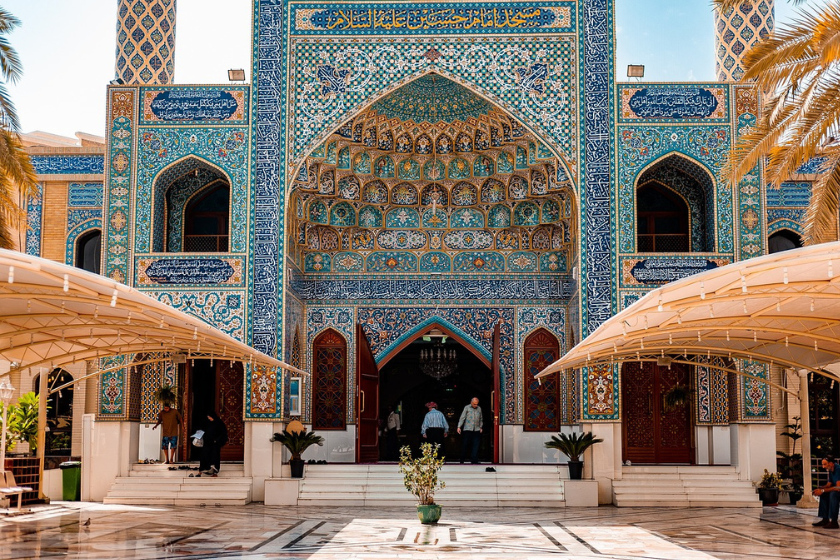
The UAE is also a rentier state.
Rentier States are countries that are rich in natural resources, primarily oil, natural gas, and mineral resources.
These states use revenues from the extraction and export of natural resources to finance domestic economic activities and government budgets.
Governments play a leading role in economic activity and public service delivery, and governments typically centralize natural resource revenues to invest in domestic development projects and social welfare.
Examples of rentier states are Saudi Arabia, the United Arab Emirates (UAE), Qatar, Kuwait, and other countries whose main source of income is oil.
See also: Wikipedia, ” Rentier State.”
Why Dubai is wealthy
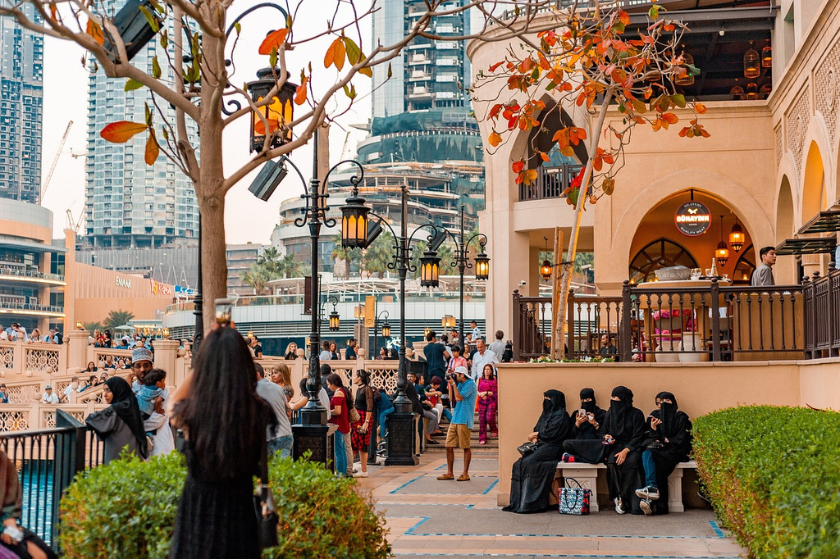
Since the 1990s, Dubai’s development and policies have been recommended under the slogan of becoming the world’s largest country in terms of “economy,” “finance,” and “tourism.
Corporate income tax will be effective from June 2023, Dubai is part of the UAE and is a “tax haven” area.
Dubai was not originally a place to get oil compared to Abu Dhabi or other federal countries, but by introducing a “tax haven” it has succeeded in attracting a base of foreign companies.
A “tax haven” provides attractive conditions for entrepreneurs and companies, including exemption from personal income tax, value-added tax (similar to Japan’s consumption tax), and taxes on dividends and interest earned on investments, as well as preferential tax treatment, business-friendly policies, and simplified regulations.
At the same time, Dubai has established itself as an international financial center in the Middle East region.
World-class banks and financial institutions have set up shop, serving multinational corporations and investors, and the development of the financial sector has led to more high-paying jobs and business opportunities and a growing presence of wealthy individuals.
Dubai’s rapidly growing real estate market has attracted global attention, with investors from all over the world creating a flurry of luxury residential, commercial, and high-rise real estate projects, providing opportunities for investors to build assets.
And although Dubai was originally a small country with only pearl farming and other industries, it is now known as a world-class tourist destination, and tourism is being developed as an important economic sector.
Prime Minister Mohammed’s project, “The World’s Best Capital,” has led to the construction of the world’s largest hub airport at the Burj Al Arab, a seven-star top-class hotel, as well as many luxurious tourist facilities such as shopping malls, resorts, and entertainment facilities to attract wealthy tourists. The city is attracting wealthy tourists.
These policies have helped Dubai develop into one of the wealthiest countries in the world.
See also: How tax havens in Dubai are formed and how to save on taxes.
No taxes, no education, no medical care.
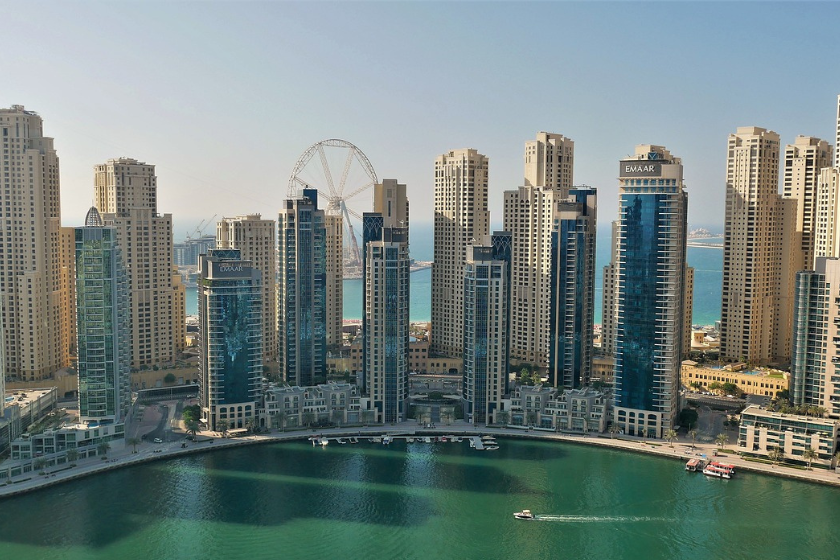
There are many rumors on the Internet about the wealth of the Emiratis, and one of the main possible reasons is that the country’s affluence allows for free taxes, education, and health care.
As for tuition fees, the government even pays for study abroad, so young people can study what they want in the country of their choice and return to their home countries to become public servants.
Since only Emiratis can be civil servants, major parts of the country are run exclusively by Emiratis.
National as well as local officials can earn high annual salaries, and the entire Emiratis population is made up of wealthy families.
In addition, urban planning in Dubai is developing at a very fast pace and there is a lot of new real estate being created.
So many people invest in real estate to earn rental income, and on top of that, the government distributes oil dividends, so they always have money, so they basically don’t save much.
Thus, as spending only what one earns becomes the norm, what is considered a luxury in other countries tends to become the standard.
UAE (Abu Dhabi/Dubai) Business Etiquette
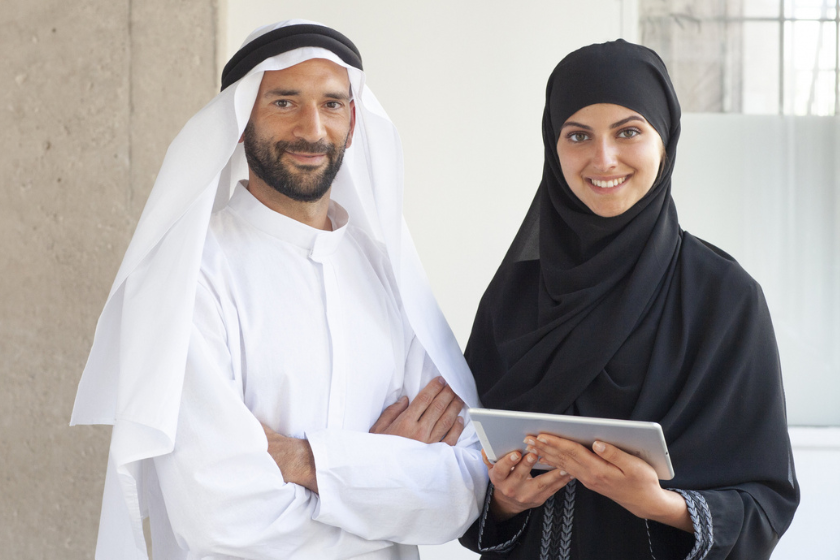
Knowing business etiquette in the UAE is an important step toward being respectful to others.
Here are some basic manners for business in the UAE.
First Meeting Greetings
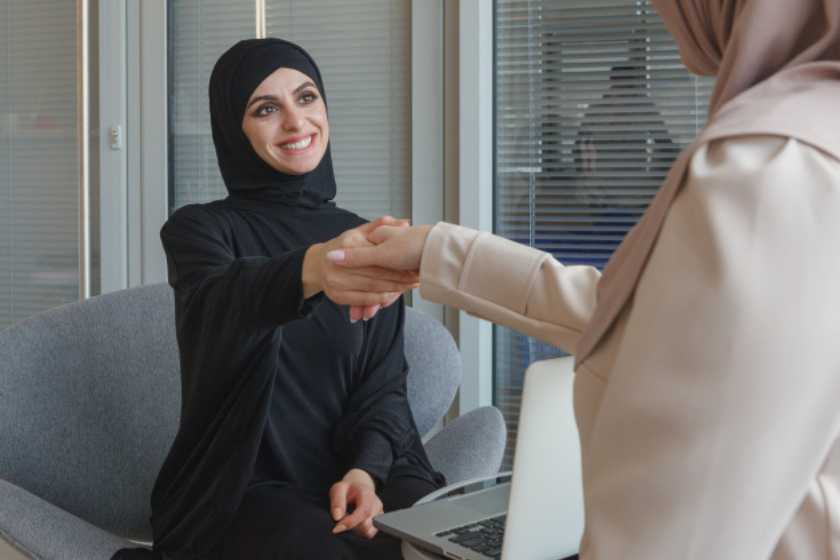
In the UAE, handshakes are common when greeting people.
Between men, the handshake takes place, but between women and men, it is common for the woman to offer her hand first.
In Muslim countries, it is taboo for a man to touch a woman, so always yawn at the hand offered by the woman in business greetings.
It is also preferable to show respect by using the person’s title honorific when greeting them.
Many people say to me, “As-salām ‘alaykum,” which is a greeting to say hello.
It is a greeting, meaning “May the peace of God be upon your head.”
If someone says, “Assalamu alaykum! you are obliged to answer, “Wa alaikum”, so let’s answer it.
What to watch out for when doing business during Ramadan
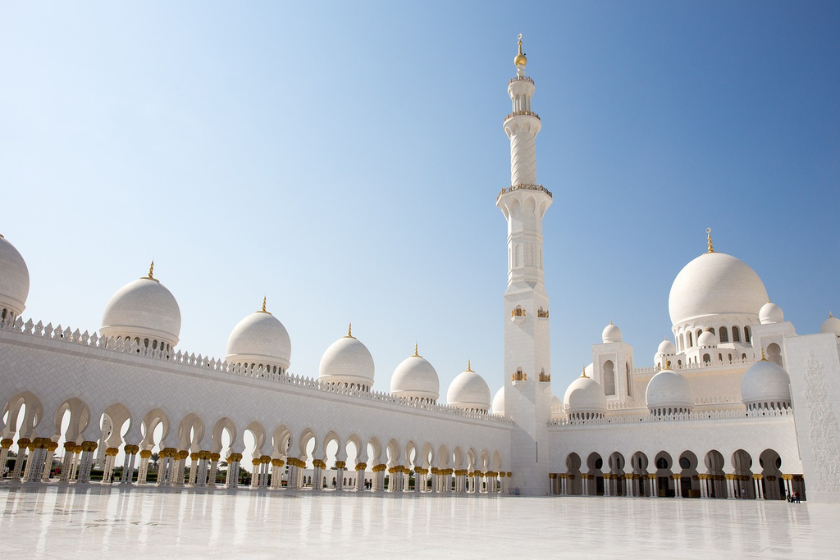
During Ramadan, Muslims observe a fast in which they abstain from food and drink from sunrise to sunset.
When scheduling business meetings, lunches, etc., be considerate and show consideration for the possibility that the other person is fasting.
Ramadan changes every year, so it is always recommended to check with the Emiratis when doing business with them.
In some cases, it is advisable to schedule meetings and meals with Muslim business partners after sunset.
Ramadan is a special time for Muslims and we should respect its religious significance.
Since Muslims are making a self-sacrifice by observing the fast, we will accept them with respect and show them that we respect their faith.
During Ramadan, the energy of Muslim business partners may be easily diminished due to fasting.
Therefore, it is important to be flexible in terms of scheduling and time to conclude.
Ramadan is a religious period, focused on the beliefs of Muslims.
Therefore, it is important to respect this period, which is considered sacred in sales and promotional activities.
Be careful not to engage in too much excessive sales or promotional activities at this time of year, as they can be counterproductive.
At the end of Ramadan, there is a vacation called Eid al-Fitr, and it is common for people to take a few days off.
Business appointments and engagements should take this holiday into account and adjust the other party’s schedule accordingly.
Ramadan is an important time to show respect and consideration when doing business with Muslims.
Respecting the culture and beliefs of others and being flexible can help build good business relationships.
Candura and Abaya
UAE men wear a white “kandoora” and women wear a black “abaya” as their formal attire.
The men wear a white maxi-length dress-like “kandoora,” with a white cloth called “kutra” and a black cord called “akhar” tied around their heads like a loop.
It is worn at school like a school uniform for Japanese students and is formal attire for the workplace like a suit.
Muslim women are not allowed to show their skin in public, so they wear black “abaya,” clothing from the head.
At first glance, abayas look the same, but there is a wide variety with detailed and detailed designs.
Since the abaya is removed inside the house, many women enjoy wearing casual clothes under the abaya, such as long, brightly colored dresses or jeans for the younger generation.
Even foreigners should always wear an abaya when touring mosques.
See: Tabikofure, ” What do UAE locals wear? Kandoora for men and abaya for women. You might want to buy one as a souvenir…”
What to wear when doing business in the UAE
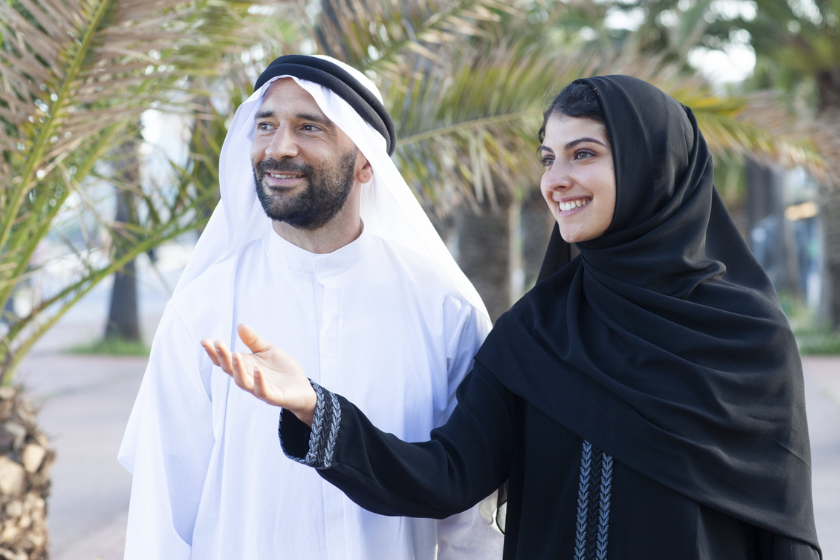
Dubai is an international city.
Thus, it becomes very difficult to determine where the standard of “normal” refers to.
Many people besides native UAE nationals work in Dubai, and many countries from Southeast Asia and Africa, including India, Singapore, and the Philippines, as well as Arab countries, Europe, and the United States, use Dubai as a corporate base.
Rather than considering a standard dress and framework for foreigners working in the UAE, people from any company in any country are expected to dress appropriately for business based on the culture and customs of that country.
When inviting a genuine UAE national to Japan, it is advisable to dress in a suit and not too casual.
Especially for women, excessive exposure or clothing that emphasizes the body shape is frowned upon in Muslim countries, no matter what nationality you are.
And business people in the UAE, both men and women, tend to wear high brands to match their social status.
However, as in Japan, only bags and wallets are high-brand items. “If your whole body is dressed in a high-brand outfit, you carry a high-brand item, but you don’t ride the subway.
The possession of high-brand products is a natural consequence of their status, as in the following example.
UAE men wear a white “kandoora” and women wear a black “abaya,” which is a full-body covering.
The men wear a white maxi-length dress-like “kandoora,” with a white cloth called “kutra” and a black cord called “akhar” tied around their heads like a loop.
Since this is formal attire, people wearing this attire are the norm for important meetings, and the people receiving the meeting are encouraged to wear suits, which are appropriate formal attire.
As a side note, I heard that Kandura’s high-end products are popularly made in Japan.
What to keep in mind when entertaining guests from the UAE in Japan

Here are three points that you should pay special attention to in order to greet guests from the Muslim country of UAE without rudeness.
UAE Business Culture and Courtesy
The UAE business culture is very formal and showing respect is important.
As in any country, criticizing others and revealing one’s feelings should be especially avoided.
They are also expected to have a respectful and polite attitude toward business topics.
Business meetings are usually conducted in formal Kandura and Abaya attire.
Therefore, please wear a business suit that will not be rude from the Japanese side.
Flexible scheduling is required in the UAE, as it is common for people to arrive later than scheduled.
The tendency is to spend more time on small talk and general topics at the beginning of the meeting, and the meetings tend to be relatively long, so try to schedule more time.
About Souvenirs and Business Gifts
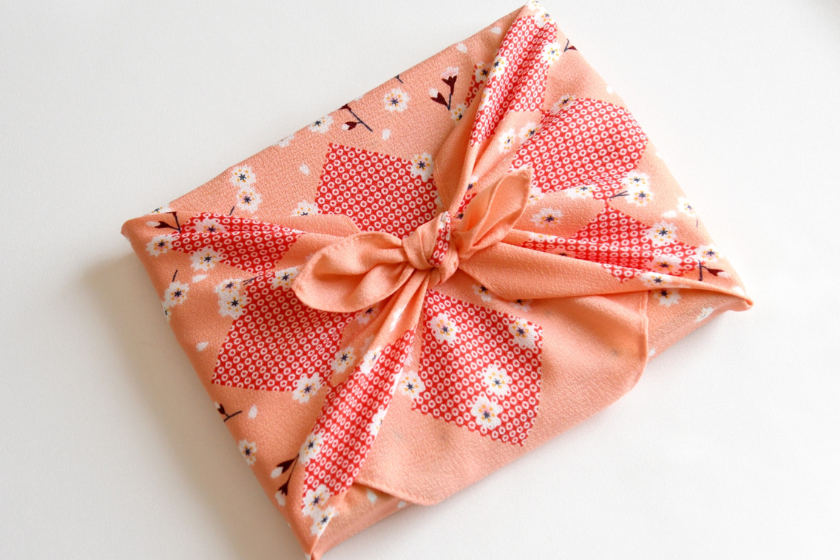
In the UAE, business gifts are a common practice and may be given as part of a business transaction or relationship building.
Gifts do not have to be exclusively luxury or extravagant, but it is a good idea to choose high quality items or local products from your country.
We recommend that you choose your gift carefully, as something that is uniquely Japanese or has a traditional beauty is preferred.
Also, since many people have a sweet tooth, Japanese sweets made with Halal-compliant ingredients are also recommended.
Basically, it is important to show humility and gratitude when receiving a gift, as it is similar to the Japanese souvenir culture in some aspects.
Prepare Halal meals.
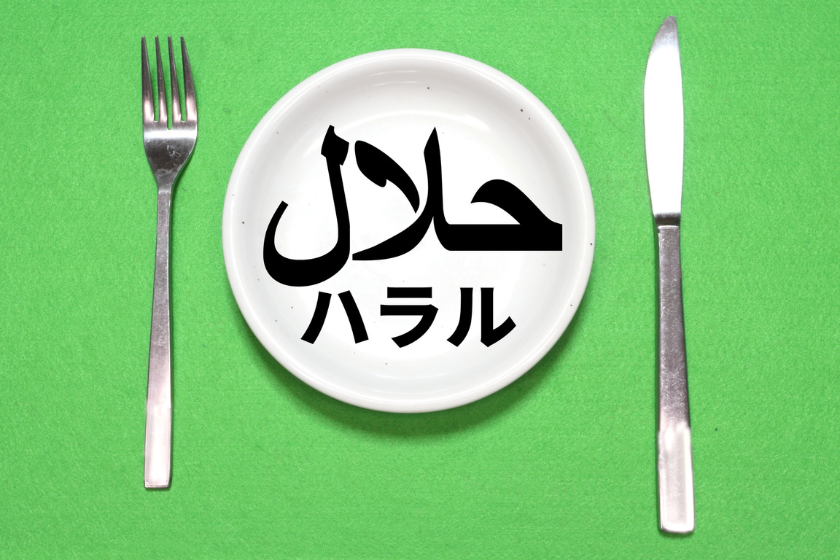
Muslims eat foods called Halal.
Halal is food that conforms to Islamic food regulations according to the Koran.
Halal diets must avoid pork, by-products derived from pigs, alcohol, and poultry that do not comply with Halal regulations.
For business lunches and dinners, choose a restaurant that serves Halal meals or prepare a meal option that is appropriate for the recipient.
During business events and dinners, food segregation is necessary to ensure that the recipient chooses Halal meals.
Also, some Muslims choose to eat vegetarian or vegan meals in addition to Halal meals, so be sure to check in advance.
Alcoholic beverages are prohibited for Muslims, so care must be taken to keep them out of the venue.
Reference: Japan Halal Association
Sincerity and hospitality
It is a very high level to entertain guests from the UAE, where everyday life is already luxurious.
For them, who usually live in an order of magnitude of luxury, the thought of responding only in terms of money and luxury does not resonate with them at all.
Luxury and high quality are the prerequisites, but it is also necessary to prepare hospitality that will impress even the most discerning guests.
It is a mind that treats others with care, consideration, and sincerity.
And since their wishes are often on an extraordinary scale, don’t be afraid to listen carefully and be ready to respond.
They are very accustomed to being served.
Therefore, it is important to take pride in being a professional in hospitality and customer service, as you have an eye for the quality of service you are receiving and the nature of the person you are dealing with.
Recommended Japanese cultural experiences for guests from the UAE
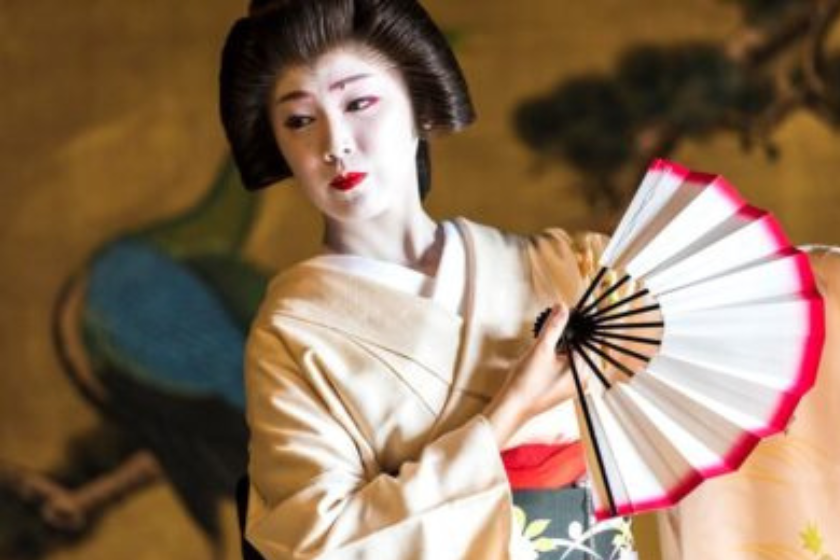
We recommend a Japanese cultural experience for entertainment planning to satisfy guests from the UAE who have some restrictions on food and alcohol.
The Japanese cultural experience of hospitality can provide you with a special experience and time, so that your business entertainment, which tends to rely on drinks and food, can be delivered as a more luxurious experience than that.
Here we introduce four Japanese cultural options that will delight guests from the UAE.
Recommended related article: Japanese cultural experiences popular among foreigners! Recommended 12 Experiential Sightseeing & VIP Entertainment
Tea ceremony experience in the tea room
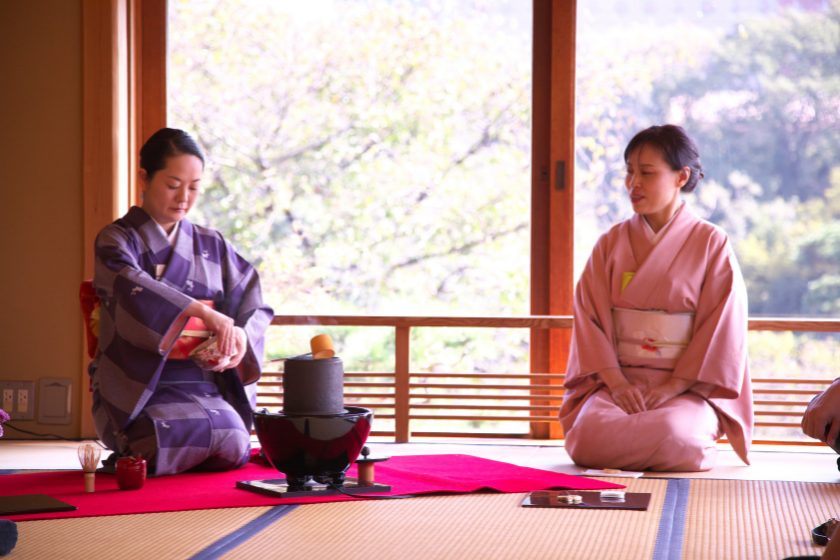
If you are entertaining Muslims in the UAE, where alcohol is forbidden, the Japanese tea ceremony is a great way to do so.
In Dubai, there is a culture of treating guests with “Arabic coffee”.
Arabic coffee is made by the patriarch, not the servants, to the guests.
The guest also follows the etiquette of drinking coffee.
This is very similar to the tea ceremony, and there are many similarities in spirit, so if you want to entertain important guests first, let’s welcome them with a tea ceremony.
Respect for beauty in the midst of neatness is another aesthetic that can be seen between Arab and Japanese.
Since we can understand each other’s culture through a cup of drink, the tea ceremony experience is a Japanese cultural experience that we recommend to our valued guests in the UAE.
Recommended reference article: [Practice by expatriates] Omotenashi with Tea Ceremony and Kimono
Reference: Senke’s official website, ” Arab ‘Omotenashi’ and the Tea Ceremony “.
Experiencing the art of Kodo, the art of fragrance
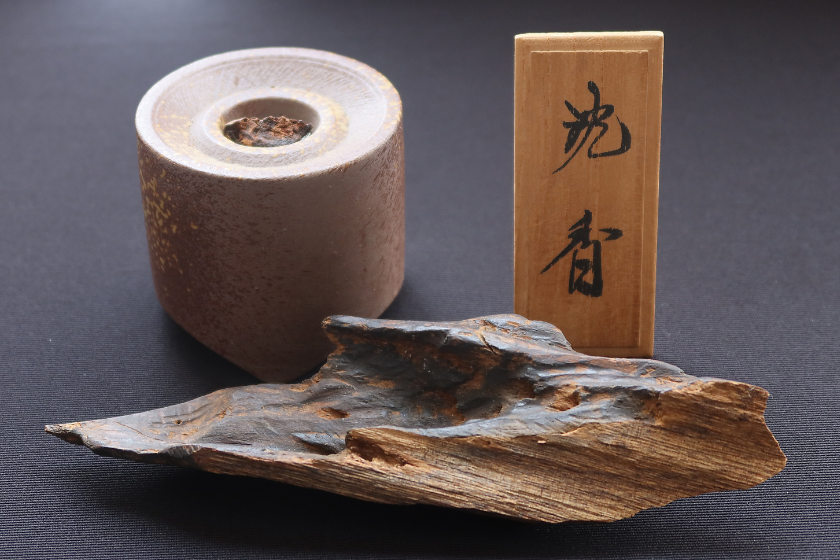
In Arab countries, there is a culture of enjoying fragrance.
Many people enjoy dressing up in fragrance because they wear simple kadoun or abaya.
It appears that men also enjoy perfume and wear it to fashion their fragrance.
The middle generation of Islamic culture boasted a high level of distillation of rose oil for the enjoyment of royalty.
At this time, alcohol was discovered in the fermented product by a distillation apparatus, and it is said that the beginning of perfume was the mixing of fragrance with this alcohol.
Thus, perfumes have a long history in Arab countries and have been enjoyed by royalty and the upper classes since ancient times.
Japanese Kodo is a Japanese cultural experience that will satisfy guests from Dubai and Abu Dhabi.
An instructor of Kodo will be invited to participate in the experience, and an interpreter will be provided to explain in detail about the art of Kodo.
Of course, we will prepare a full-fledged meal in a Japanese-style room or a tea ceremony room with a view of a classy Japanese garden.
Enjoy a moment of elegance by preparing rare fragrant woods!
See also: The “Scent” Situation in Dubai Behind the Scenes: The Relationship between Scent and Islamic Culture.
Japanese Sweets Making Workshop
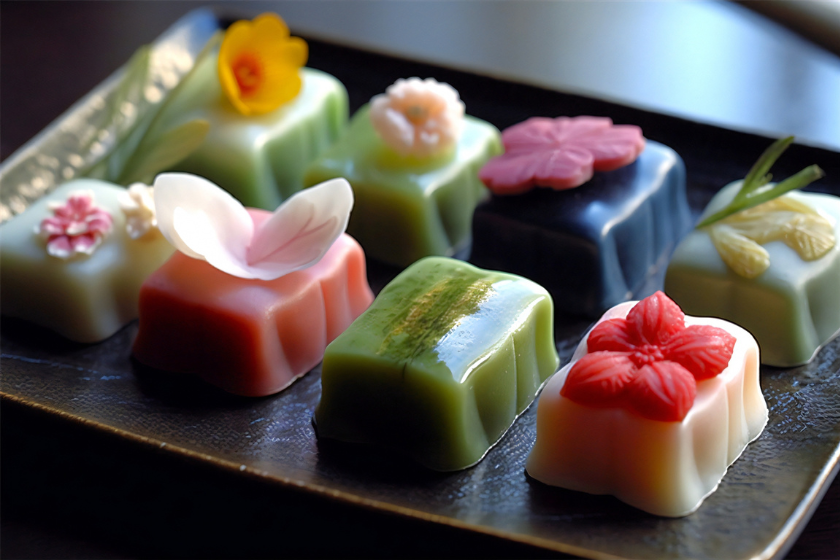
People in Arab countries love sweets.
If you are looking for a hands-on experience in making something, how about a Japanese confectionery workshop?
Wagashi is a traditional Japanese sweet that does not contain animal products.
It is popular overseas as a vegan meal, and can also be made Halal, although you need to confirm the ingredients used in advance to be sure.
Wagashi is a Japanese sweet that can be enjoyed with the eyes as well.
This is a Japanese cultural experience that allows visitors to fully experience Japan’s uniqueness, as they can enjoy the seasons of spring, summer, fall, and winter with their own eyes.
After making delicious sweets, it is nice to have matcha (powdered green tea) in the tea room.
Both can be prepared as a high-class hospitality if organized in a Japanese-style room with a lovely view of a Japanese garden or a Japanese garden with a tea ceremony room.
kabuki appreciation
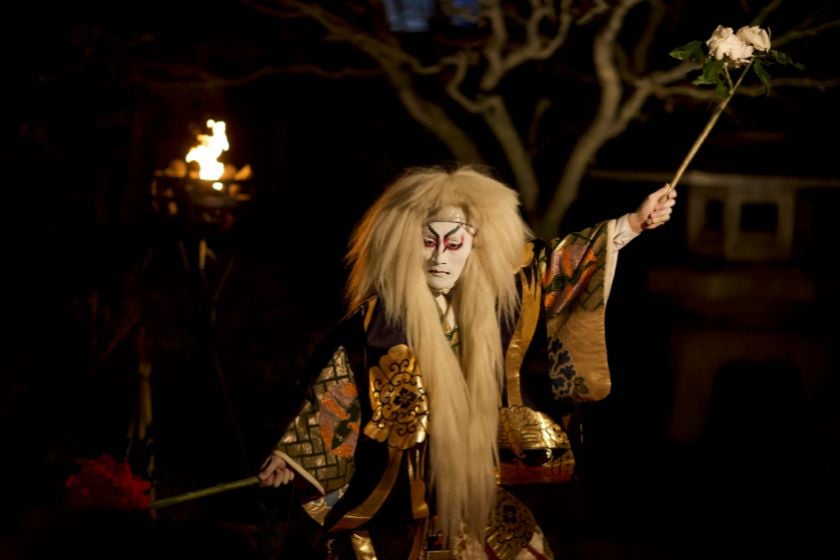
In 2016, a Kabuki performance by Kabuki actor Ebizo Ichikawa, “Grand Japan Theater,” was held in Fujairah, one of the emirates of the UAE.
This makes Kabuki viewing very attractive to the people of the UAE and a meaningful cultural exchange event.
To view kabuki in everyday life, you would have to go to a Kabuki-za theater, but if you are preparing for a special guest, invite a kabuki actor to give a lecture in a private space and have him plan the event.
We can plan a lecture while enjoying a meal, which is perfect for guests from the UAE, which has a large population of wealthy people.
In addition, Kabuki actors will give explanations about Kabuki before their lectures, so foreigners can enjoy Kabuki, which is considered to be difficult to understand, in an authentic way.
Related articles:Recommended for inbound visitors to Japan! What is popular traditional entertainment?
See also: Dubai Keizai Shimbun, ” Ebizo Ichikawa’s Kabuki Performance in UAE: Renjishimai on a Starry Sky Stage “.
summary
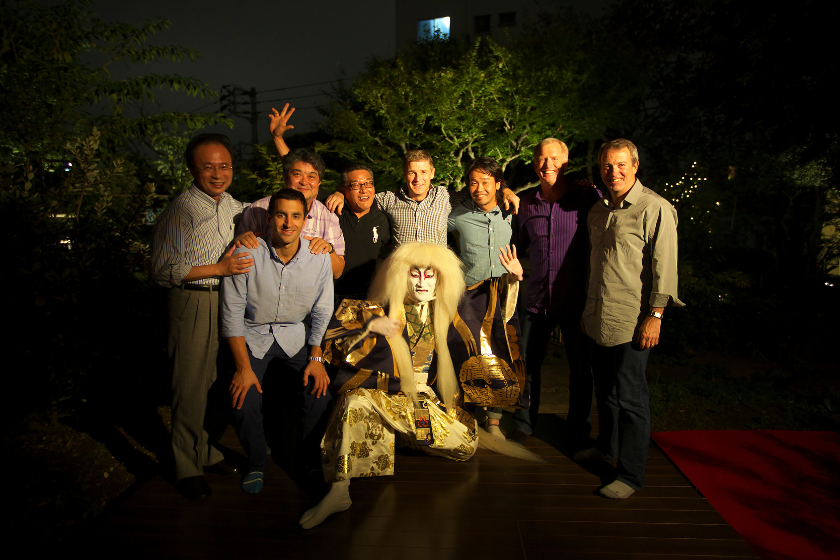
In this issue, we introduced the reception of guests from the UAE and the United Arab Emirates.
When entertaining guests from the UAE, one of the wealthiest countries in the world, it is often difficult to know what to do.
However, by learning about and respecting the culture and customs of the other party, you will naturally find ways to provide hospitality.
Let us welcome our valued guests from the UAE with a great hospitality to satisfy their needs!

After graduating from university, I worked as a Systems Engineer (SE) at Reuters Japan. Later, I spent five years as a Systems Manager at Reuters Singapore. After that, I studied business administration at a business school in the Netherlands and joined Hitachi Ltd. At Hitachi, I was responsible for new business development, promoting new projects in China and investment schemes in emerging countries. After working for 11 years, I started running Motenas Japan, offering Japanese cultural experiences to foreigners under the motto “Bringing Japan and the world closer together.”





